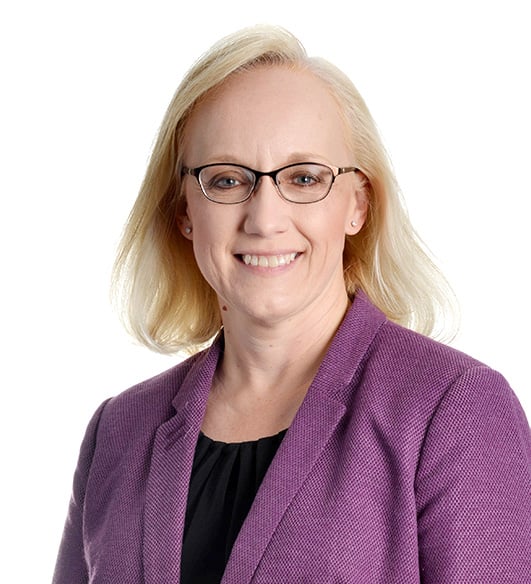Key Takeaways
- Hospitals and clinics eligible under section 340B can stretch federal resources by obtaining outpatient drugs at discounted prices to reach more vulnerable patients.
- Maintaining eligibility for 340B requires proactive oversight, including tracking recertification deadlines and keeping leadership engaged.
- Compliance through internal self‑audits and strong controls—such as preventing drug diversion and duplicate discounts—is vital to avoid costly HRSA findings.
In an era of rising compliance risk, the 340B program represents a key opportunity to help health systems and critical access hospitals stabilize revenue and expand care access. The 340B program enables covered entities to reach more eligible patients and provide more comprehensive services by stretching federal resources.
Understanding the 340B program and its impacts may open the door to potential benefits for your healthcare entity.
What is 340B?
Section 340B is part of the Public Health Service Act and requires pharmaceutical manufacturers to enter into a pharmaceutical pricing agreement (PPA) in exchange for having their drugs covered by Medicaid and Medicare Part B. Part of the PPA is an agreement that the manufacturer will provide front-end discounts on covered outpatient drugs to covered entities.
These covered entities serve some of the nation’s most vulnerable patient populations, making it an ideal opportunity for rural health systems and critical access hospitals.
Are you Eligible for the 340B Program?
The 340B program considers the following categories of hospitals to be covered entities:
- Disproportionate share hospitals (DSH)
- Children’s and cancer hospitals
- Sole community hospitals
- Rural referral centers
- Critical Access hospitals
To qualify, hospitals must meet at least one of the following:
- Be owned/operated by a state or local government.
- Be a public or private nonprofit corporation granted governmental powers by state or local government.
- Be a private nonprofit organization that contracts with state or local government to provide care to low-income individuals.
Key Consideration: Eligibility is not static—leadership changes, legal structure shifts, or a missed recertification email can inadvertently endanger your status.
Ask Yourself:
- Do we have dedicated ownership of 340B oversight in our leadership team?
- Are we tracking eligibility and recertification deadlines as part of our governance?
How to Register for the 340B Program
If you meet eligibility requirements, you can register online. Once approved for the 340B program, covered entities will receive eligible covered outpatient drugs.
Remember: the 340B Drug Pricing Program requires an annual recertification. This needs to be anticipated and monitored so the healthcare organization does not unknowingly lose eligibility and compliance.
It is important to keep the information related to the 340B Drug Pricing Program, such as the names and email addresses of the key people, current.
We have seen several instances where the annual recertification email went to an individual who was no longer with the healthcare organization, so the recertification was not completed.
How do I stay compliant with the 340B program?
As a covered entity under the 340B program, you must be proactive and take steps to ensure compliance. Self-audits are a way to accomplish this and can be completed either by internal personnel or an outside vendor.
Most HRSA audits conducted randomly, with a few conducted due to whistleblowing or self-reporting. While the Federal Register outlines compliance and audit guidance from 1996, most Covered Entities have had little knowledge of what to expect from an HRSA 340B audit.
Key Consideration: Noncompliance often stems from well-meaning but misaligned systems. Internal education and regular self-audits are crucial.
Ask Yourself:
- Are staff trained to understand diversion and duplicate discount rules?
- Are our data systems able to track 340B drugs across multiple care settings?
- Do we conduct regular self-audits, and are we confident in the documentation?
What to Expect in a 340B Audit
A 340B compliance audit generally begins with a notice from HRSA. The process includes:
- Entrance conference by phone.
- An onsite audit and data request for documentation on 340B usage during the six months prior.
- Exit interview
- Preliminary audit report, delivered within a few months to a year after the visit.
- Final audit report after the covered entity has time to review and resolve the findings.
Some hospitals have had fewer than 30 days to prepare the required documentation, which is why we stress regular self-audits to ensure documentation is ready if needed.
During the audit, HRSA will:
- Review policies, procedures, and processes related to 340B drugs.
- Examine internal controls to prevent diversion and duplicate discounts.
- Test transactions related to 340B drugs.
The audits cover the parent site, as well as any registered outpatient facilities and all contracted pharmacies.
Covered Entity Compliance
Covered Entities have three major compliance requirements to remain eligible for the program:
- 340B drugs must only be dispensed to eligible outpatients of the Covered Entity. This is called “diversion prohibition.” So, every patient who presents at a contracted pharmacy claiming 340B eligibility must be verified as an eligible patient of the Covered Entity.
- 340B drugs cannot be double-discounted by Medicaid rebates. This is referred to as “duplicate discount prohibition.” Covered Entities need to work closely with the state Medicaid program to determine how to appropriately handle Medicaid patients to ensure that duplicate discounts on drugs for Medicaid patients are not happening.
- Covered Entities may not obtain any covered outpatient drugs through a group purchasing organization (GPO). This is referred to as “GPO prohibition.”
Through the HRSA audit process, Covered Entities have been ordered to pay back discounts to pharmaceutical companies in the event they violate requirements. This becomes a very complicated process, as drug prices generally update quarterly, and calculations must be made per quarter.
Refunds must be made to all participating pharma companies, and not paid in one lump sum to one manufacturer. The complexity of the calculations and time spent contacting the individual pharmaceutical companies can be overwhelming, so it is better to avoid the need to refund these discounts.
How to Move Forward with 340B
Compliance is a growth strategy. When managed well, 340B can significantly expand your hospital’s capacity to serve its community.
Don’t wait for an audit to uncover gaps. Make 340B compliance part of your broader organizational performance strategy.
Need help evaluating your 340B exposure—or preparing for a potential audit?
Our team of healthcare professionals can help you make sense of your 340B and other hospital compliance items. Let’s talk.
Make a habit of sustained success.

Healthcare
We focus on the business of your healthcare organization so you can focus on your patients.
Who We Are
Eide Bailly is a CPA firm bringing practical expertise in tax, audit, and advisory to help you perform, protect, and prosper with confidence.



